第21章
in short, you will learn that since everything depends absolutely on difference of organization , a well constructed animal which has studied astronomy, can predict an eclipse, as it can predict recovery or death when it has used its genius and its clearness of vision, for a time, in the school of Hippocrates and at the bedside of the sick. By this line of observations and truths, we come to connect the admirable power of thought with matter, without being able to see the links, because the subject of this attribute is essentially unknown to us.
Let us not say that every machine or every animal perishes altogether or assumes another form after death, for we know absolutely nothing about the subject. On the other hand, to assert that an immortal machine is a chimera or a logical fiction, is to reason as absurdly as caterpillars would reason if, seeing the cast-off skins of their fellow caterpillars, they should bitterly deplore the fate of their species, which to them would seem to come to nothing. The soul of these insects (for each animal has its own) is too limited to comprehend the metamorphoses of nature.
Never one of the most skillful among them could have imagined that it was destined to become a butterfly. It is the same way with us. What more do we know of our destiny than of our origin? Let us then submit to an invincible ignorance on which our happiness depends.
He who so thinks will be wise, just, tranquil about his fate, and therefore happy. He will await death without either fear or desire, and will cherish life (hardly understanding how disgust can corrupt a heart in this place of many delights); he will be filled with reverence, gratitude, affection, and tenderness for nature, in proportion to his feeling of the benefits he has received from nature; he will be happy, in short, in feeling nature, and in being present at the enchanting spectacle of the universe, and we will surely never destroy nature either in himself or in others. More than that! Full of humanity, this man will love human character even in his enemies. Judge how he will treat others. He will pity the wicked without hating them; in his eyes, they will be but mis-made men. But in pardoning the faults of the structure of mind and body, he will none the less admire the beauties and the virtues of both. Those whom nature shall have favored will seem to him to deserve more respect than those whom she has treated in step-motherly fashion. Thus, as we have seen, natural gifts, the source of all acquirements, gain from the lips and heart of the materialist, the homage which every other thinker unjustly refuses them. In short, the materialist, convinced, in spite of the protests of his vanity, that is he but a machine or an animal, will not maltreat his kind, for he will know too well the nature of those actions, whose humanity is always in proportion to the degree of analogy proved above [between human beings and animals]; and following the natural law given to all animals, he will not wish to do to others what he would not wish them to do to him.
Let us then conclude boldly that man is a machine, and that in the whole universe there is but a single substance differently modified. This is no hypothesis set forth by dint of a number of postulates and assumptions; it is not the work of prejudice, nor even of my reason alone; I should have disdained a guide which I think to be so untrustworthy, had not my senses, bearing a torch, so to speak, induced me to follow reason by lighting the way themselves. Experience has thus spoken to me in behalf of reason; and in this way I have combined the two.
But it must have been noticed that I have not allowed myself even the most vigorous and immediately deduced reasoning, except as a result of a multitude of observations which no scholar will contest; and furthermore, I recognize only scholars as judges of the conclusions which I draw from the observations; and I
hereby challenge every prejudiced man who is neither anatomist, nor acquainted with the only philosophy which can here be considered, that of the human body. Against so strong and solid an oak, what could the weak reeds of theology, of metaphysics, and of the schools, avail, ---- childish arms, like our parlor foils, that may well afford the pleasure of fencing, but can never wound an adversary. Need I say that I refer to the empty and trivial notions, to the pitiable and trite arguments that will be urged (as long as the shadow of prejudice or of superstition remains on earth for the suppose incompatibility of two substances which meet and move each other unceasingly?
Such is my system, or rather the truth, unless I am much deceived.
It is short and simple. Dispute it now who will.